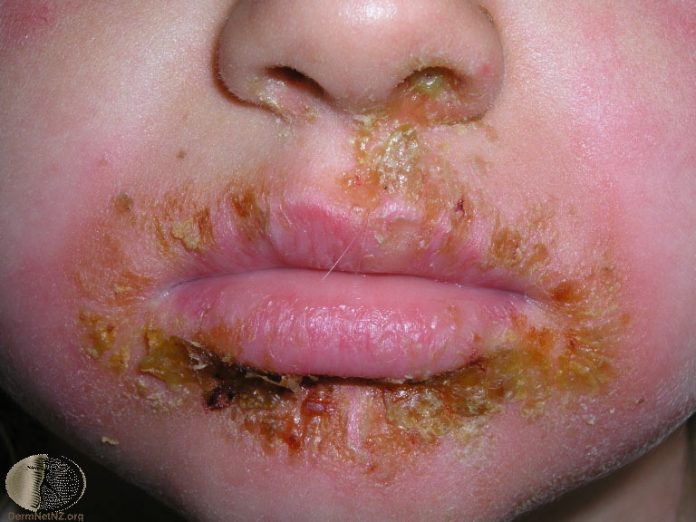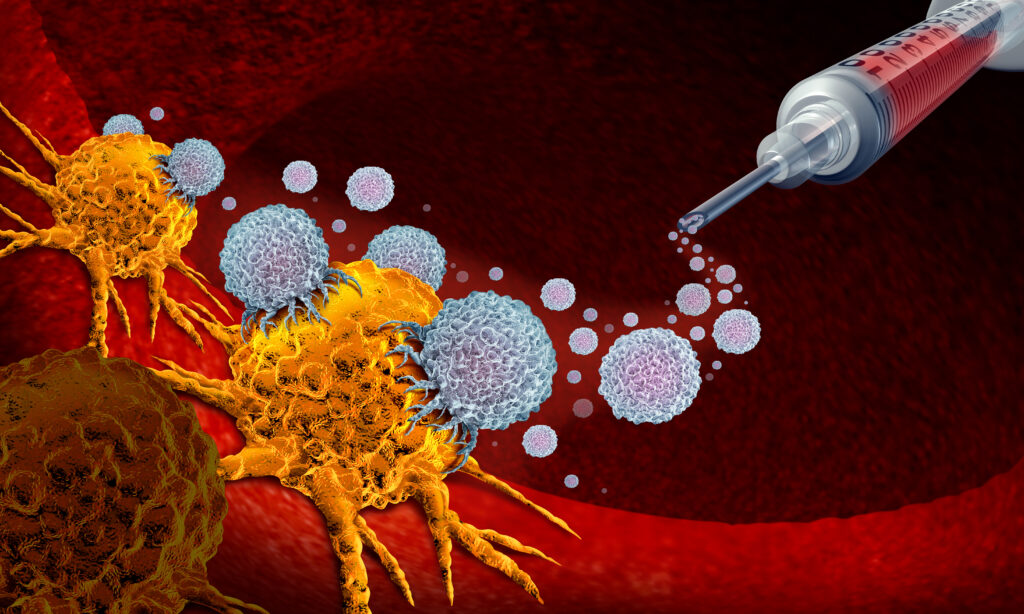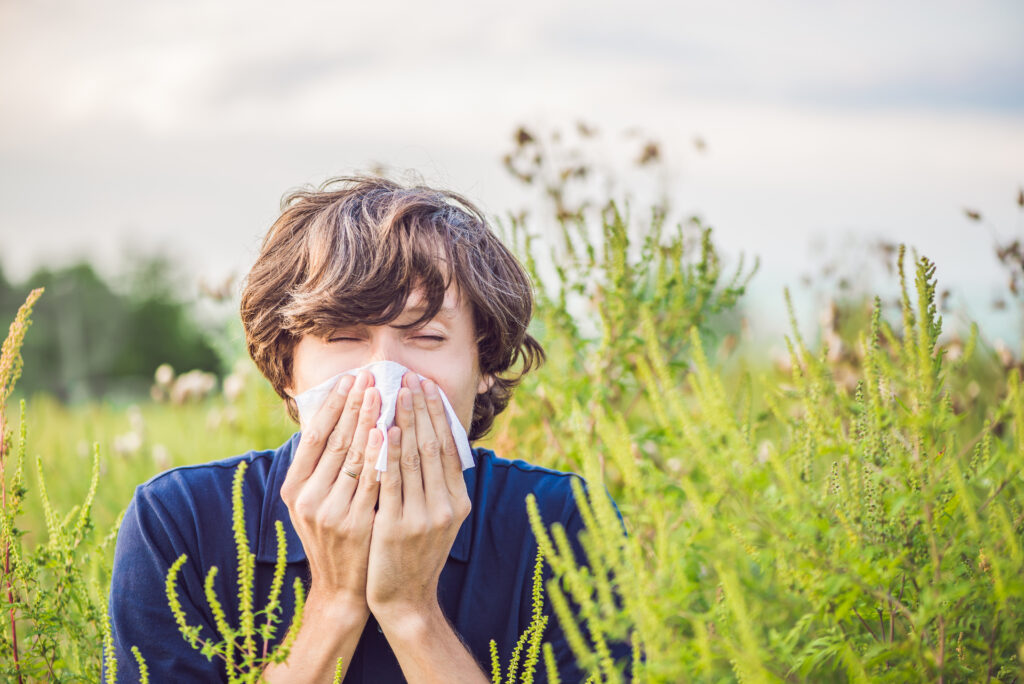Breaking Down Allergies
But what causes these reactions in our bodies?
+ 365 Care
Breaking Down Allergies
Allergies are something we’ve all experienced. You know you have seasonal allergies if you have a runny nose and itchy, watery eyes that make you go nuts.
Your nose and sinuses notify you when the elm trees in your Newark neighborhood begin to swell or the grass begins to sprout every year!
If you’ve ever experienced a more serious response like hives or difficulty breathing after eating peanut butter, you’ll know you’re allergic to it.



Our Services
Emergency Cases
1-201-984-4444
We offer 24/7 high-quality and immediate emergency facility. We eagerly provide the best medical and surgical care to the patients.
But what causes these reactions in our bodies?
To put it another way, allergies are the result of the immune system overreacting. Even though allergies are classified as a chronic illness, you shouldn’t be alarmed. It only denotes the fact that they are long-lasting or recurring.
An allergic response occurs when your body’s antibodies do their job. Your body overreacts to pollen in your nose, for example, by sneezing in an attempt to flush it out of your system. If you’re allergic to cats, you may develop hives or irritated eyes if you come into contact with one.
There are times when your body goes crazy and warns you that it won’t let you have anything to do with the chemical again, resulting in an extreme form of anaphylactic shock, a severe allergic response that occurs swiftly and affects several sections of your body simultaneously.
Anaphylactic shock is extremely severe and may result in death, but most patients receive some warning before it reaches that stage because they have been sent to a physician. For the rest of your life, you’ll know what caused the severe response and carry an epinephrine auto-injector, such as Adrenaclick®, EpiPen®, or generic epinephrine.
An allergic response occurs when your body’s antibodies do their job. Your body overreacts to pollen in your nose, for example, by sneezing in an attempt to flush it out of your system. If you’re allergic to cats, you may develop hives or irritated eyes if you come into contact with one.
There are times when your body goes crazy and warns you that it won’t let you have anything to do with the chemical again, resulting in an extreme form of anaphylactic shock, a severe allergic response that occurs swiftly and affects several sections of your body simultaneously.
Anaphylactic shock is extremely severe and may result in death, but most patients receive some warning before it reaches that stage because they have been sent to a physician. For the rest of your life, you’ll know what caused the severe response and carry an epinephrine auto-injector, such as Adrenaclick®, EpiPen®, or generic epinephrine.
Types of Allergies
Allergies to peanut butter, bee stings, and pets, for example, can last a lifetime for those who are sensitive to these triggers. Others, including allergies to pollen, trees, and grass, are seasonal and come and go.
The most prevalent causes of allergies, according to the doctors at 365+ Care, are:
The most prevalent causes of allergies, according to the doctors at 365+ Care, are:
- Food
- Latex
- Mold
- Pets
- Pollen
- Some drugs
- bees, mosquitoes, dust mites
- Cosmetics
Different parts of your body might be affected by allergies. Allergy doctors at 365+ Care in Newark are well-versed in identifying and treating these signs and symptoms.

Eye Allergies
Some of the most frequent are eye allergies. Someone who is allergic to anything that goes into their eyes will see their eyes become red, watery, and itchy because of the swelling of the tissue that lines the eyelid. Sometimes it feels as though there is dirt in your eyes.

Skin Allergies
It may take up to 48 hours for your skin to exhibit indications of an allergic reaction, just as with other allergies. You may notice redness, blisters, itching, hives, rashes, and/or broken skin if you have a skin allergy, which isn’t always apparent at first.

Nasal Allergies
Allergies to other things are sometimes mistaken for these. Several of us claim to suffer from “hay fever.” However, there are certain allergens that cause the nose to swell and become inflamed when they enter the body. It’s possible that the mucus coming from your nose may be thicker and runnier, and this will make you cough. You may experience a congestion itchy, sneezing, watery eyes, and runny nose.

Sinus Allergies
“Sinusitis” is the medical term for sinus allergy symptoms. The sinuses, four hollow regions in the skull, are inflamed in a very particular way. In fact, they’re made of the same tissues as those inside your nose. Like your nose, they can swell and become itchy when allergens are present. Swollen sinuses and increased mucus production are symptoms of inflamed sinuses, which can lead to headache pressure. A sinus headache is exactly what you’re experiencing.
Emergency Cases
1-201-984-4444
We offer 24/7 high-quality and immediate emergency facility. We eagerly provide the best medical and surgical care to the patients.
Allergy Treatment Options
Allergies can be managed in a variety of ways, which is a blessing.
Allergy therapy that is tailored to your lifestyle and work environment is possible with an 365+ Care allergy expert in Newark.
Allergy therapy that is tailored to your lifestyle and work environment is possible with an 365+ Care allergy expert in Newark.

Minor Lifestyle Changes
It’s possible that the most effective allergy therapy is simply not to come into contact with the allergen. Even if it sounds too simple, we’ve all met folks who do it on a daily basis.
People who are allergic to cats, for example, avoid going near them or visiting a friend or family member who has them in their house. People who have an onion allergy avoid eating them. Your doctor won’t give you Penicillin if you’re allergic to it.
People who are allergic to cats, for example, avoid going near them or visiting a friend or family member who has them in their house. People who have an onion allergy avoid eating them. Your doctor won’t give you Penicillin if you’re allergic to it.

Immunotherapy
Injectable or under-the-tongue drugs must be used on a regular basis as part of this therapy. This is the most effective method of treatment for some people who suffer from a variety of allergies.
Food, grass, trees, and animals can’t all be avoided if someone is allergic to them. Immunotherapy is the greatest way to maintain normal daily activities. These therapies can be tailored to individual allergens based on the results of allergy testing.
Food, grass, trees, and animals can’t all be avoided if someone is allergic to them. Immunotherapy is the greatest way to maintain normal daily activities. These therapies can be tailored to individual allergens based on the results of allergy testing.

Medicines
Many over-the-counter allergy drugs are beneficial, especially for seasonal allergies. Allergy treatment is also available through the use of prescription drugs, which one of our doctors can prescribe for you.

OTC Treatments
- Sprays for runny noses to ease discomfort
- The use of antihistamines and decongestants to alleviate symptoms such as sneezing, itching, and swelling
- Rash creams that include steroids like corticosteroid ointments
- Corticosteroids to treat severe allergic responses
In the event of a life-threatening allergic response, an injection of epinephrine (pronounced “ep-uh-NEF-rin”) can be administered using a device known as an “epi-pen.” Adrenaclick®, EpiPen®, or generic epinephrine auto-injectors are all good choices for epinephrine.

How Can You Know if You Have an Allergy?
To others, it may appear to be an innocent question. Sneezing, itching and hives are all signs that you have an allergy. In order to determine if your allergy is only irritating, or if it might be life-threatening, it is necessary to get an official diagnosis. The allergists at 365+ Care can assist you in determining whether or not you have a serious allergy.
There are a number of common household allergens that can be inhaled, including mold spores, pet dander, and latex dust. Food and medication, on the other hand, are taken orally. Also, you can get poison ivy and poison oak through your skin, as well as latex and other cosmetic items.
Allergy symptoms differ from person to person, and some might be a sign of a life-threatening allergic reaction. If you see any of these symptoms, please dial 911 immediately.
There are a number of common household allergens that can be inhaled, including mold spores, pet dander, and latex dust. Food and medication, on the other hand, are taken orally. Also, you can get poison ivy and poison oak through your skin, as well as latex and other cosmetic items.
Allergy symptoms differ from person to person, and some might be a sign of a life-threatening allergic reaction. If you see any of these symptoms, please dial 911 immediately.

Allergy Symptoms
- An itchy, runny nose and eyes
- Sneezing
- Rashes
- Swelling
- Redness
- Pain
- Hives-inducing rashes
- Separately or in combination, diarrhea, and vomiting
- Pain in the stomach
- Swelling of the tongue
- Throat constriction
- A feeling of heaviness in the chest
- Relatively faintness and/or fainting
Emergency Cases
1-201-984-4444
We offer 24/7 high-quality and immediate emergency facility. We eagerly provide the best medical and surgical care to the patients.
Diagnosis and Management of Allergies
There are 30 percent of adults suffering from allergy illnesses, and 40 percent of kids.
Discover which foods cause your allergies and learn about your choices for coping with them.
Discover which foods cause your allergies and learn about your choices for coping with them.

Quick and Easy Allergy Screening
An allergy test is often the only method to determine if you have a long-term allergy. If you find that eating strawberries causes your mouth to itch on a regular basis, you may have an allergy that will only worsen over time.
Is your child’s hives a sign of stress or an allergic reaction to a Christmas staple? You should be aware of this so that you can avoid the things that trigger the allergies.
At our Newark locations, allergy specialists provide fast tests for children and adults.
The pinprick test is another name for skin testing. Skin prick testing is used to determine whether or not you are allergic to a certain substance.
In around 15 minutes, if you are allergic, you will experience an allergic response to that little spot on your skin.
To determine the best course of action for treating your allergies, our doctors will use the results of this test in conjunction with information from your medical history and, in certain cases, a physical exam.

